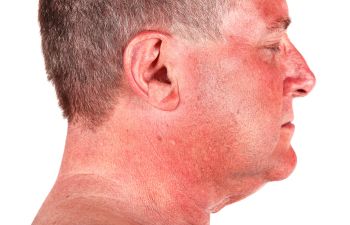
Psoriasis is a frustrating skin condition that can disrupt your life. It is a chronic inflammatory skin disease caused by a glitch in the immune system, which triggers the skin cells to grow faster than normal. While an average person gets new skin cells every week or so, a person with psoriasis can get new skin cells in just a matter of a few days. As the skin cells grow at such a fast rate, they do not have anywhere to go, and they pile up on the skin’s surface and form raised, scaly patches. Over time, these raised patches become thicker and more unattractive as new skin cells continue to pile on.
Psoriasis can range from mild to severe cases. Mild cases may be easily treated with over-the-counter products, but severe psoriasis can be challenging to treat and become embarrassing for patients. Studies have shown that severe psoriasis has a more significant impact on patients’ lives than diabetes, heart failure, and kidney disease because of its outward manifestation and how it affects a person’s self-confidence. Although psoriasis is not limited to specific areas of the body, it typically develops on the scalp, elbows, and knees. While it may be easy to “hide” psoriasis on the elbows and knees during cold weather months, psoriasis that develops on the head is often mistaken as signs of “uncleanliness.” It is also very difficult to conceal in warm weather when t-shirts and shorts are a must in Georgia.
Triggers for psoriasis flare-ups can vary from person to person, but knowing what triggers your psoriasis is vital to managing your skin condition. The most common triggers include stress, smoking, alcohol consumption, skin injuries, cold weather, and skin scratching. While treatments are available to help people manage psoriasis, you can also incorporate lifestyle habits to help you live better with psoriasis. If you have psoriasis, you must understand how stress, smoking, and alcohol affect the severity of your disease. You play a role in how much stress you put yourself under, whether you smoke or not, and how much alcohol you consume. Making the choice to reduce stress and alcohol consumption and to quit smoking will significantly impact your skin’s health. By reducing these external influences on your psoriasis flare-ups, you can then turn your attention toward managing your psoriasis.
At Medical Dermatology Specialists, Dr. Jamie Weisman has a direct focus on immune driven diseases to understand how they start and what effects they have on patients. Psoriasis is a chronic condition that does not have a “one size fits all” treatment. Our staff is dedicated to providing our patients with personalized care. Call us today.
Medical Dermatology Specialists,
5730 Glenridge Dr, Suite T-100
Atlanta, GA 30328
(404) 939-9220
Monday – Thursday 7:30 AM – 5:00 PM
Posted on behalf of
5730 Glenridge Drive, Suite T-100
Atlanta, GA 30328
Phone: Call (404) 939-9220
FAX: (470) 312-2157
Email: jstalls@atlmedderm.com


